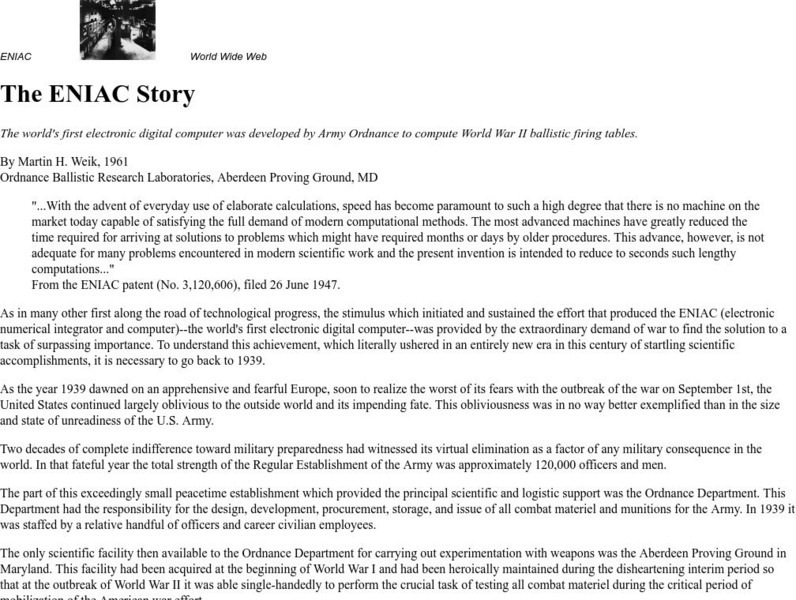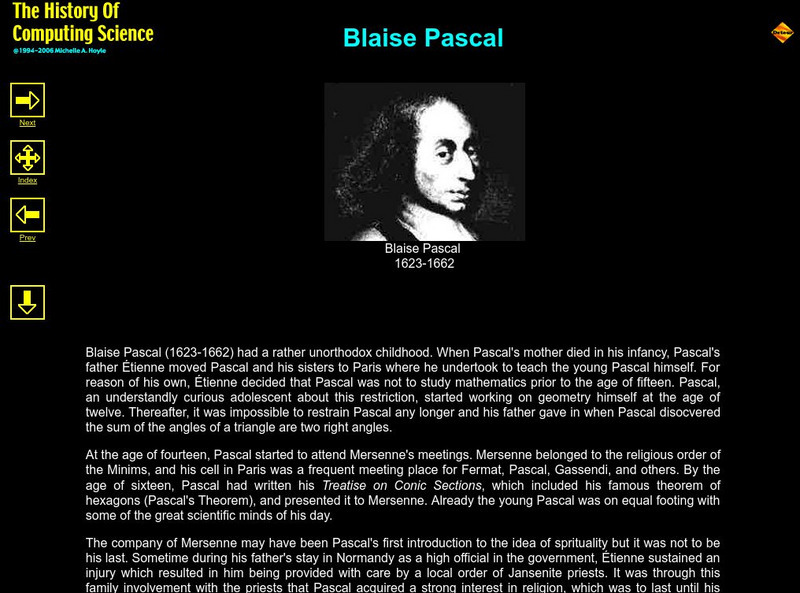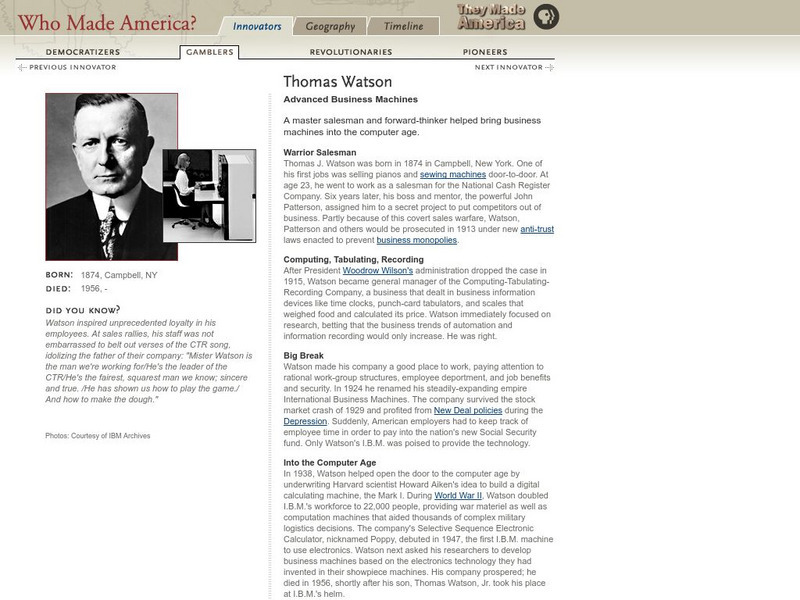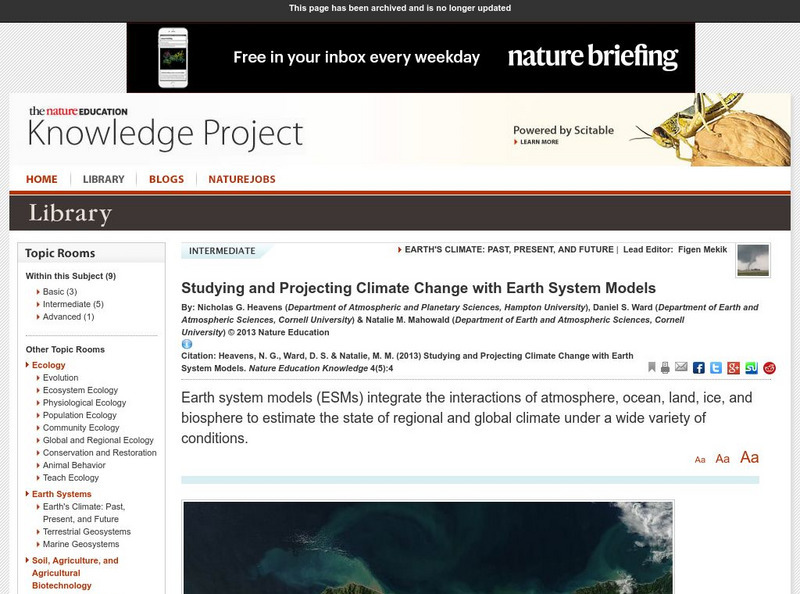Khan Academy
Khan Academy: Circle of Confusion Calculation
Understand how we can calculate the radius of a circle of confusion
Harvard University
Harvard University: Howard Aiken: Makin' a Computer Wonder
About Howard Aiken's mission to build the first programmable computer.
Other
A Brief History of Computers and Networks
Provides historical information on computers and networks, from the beginning of mechanical calculators in the 1640's to modern times.
Other
U. S. Army Research Laboratory: The Eniac Story
This site provides a detailed history of ENIAC, the world's first digital computer developed by Army Ordnance to compute World War II ballistic firing tables. Includes specifics on how the computer performed its calculations.
Khan Academy
Khan Academy: Circle of Confusion Diagram
Understand the diagram we have created to calculate the radius of a circle of confusion.
History of Computing Science
History of Computing Science: Blaise Pascal
Blaise Pascal was a French mathematician, physicist, and religious philosopher. He built the first mechanical calculator. This lecture presents a short treatment of his life and his accomplishments.
NASA
Nasa Star Child: Planet Hop
Figure out your age and your weight on all the planets in the solar system using the formulas given here. Then type them into the correct place, and let the computer check to see if you are correct.
Alabama Learning Exchange
Alex: Land Surveying Project
This project resulted from of the collaboration of a computer aided drafting teacher, Chris Bond, and a math teacher, Lee Cable, (Hewitt-Trussville High School) to provide higher math expectations in CT and real life application in...
PBS
Pbs: Who Made America?: Innovators: Thomas Watson
One-page profile of influential innovator, Thomas Watson, a master businessman whose ideas and vision became the foundation of IBM.
Nature Research
Nature Education: Studying and Projecting Climate Change
A model organizes what we think we know about something in order to predict how it might behave in the present, future, or past as well as how it might respond to external influence. Models are especially useful when direct, controlled...









